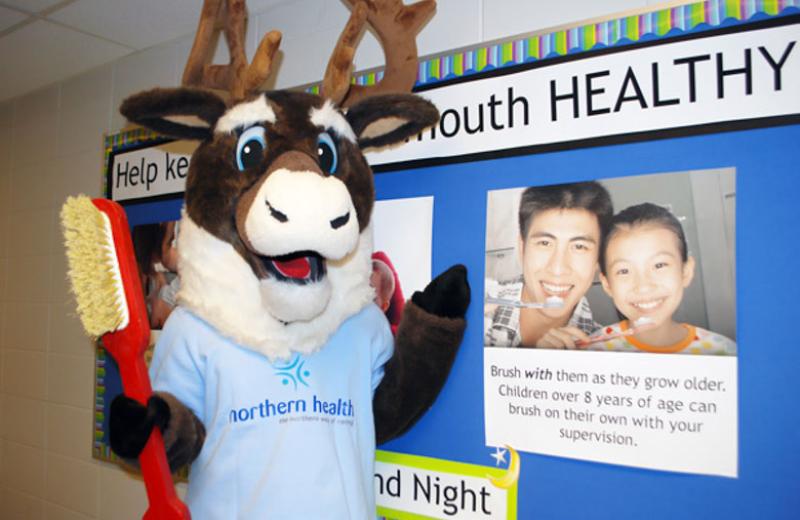I’ve been working in dental prevention since I was 16 and I was extremely fortunate that my career found me. One of my childhood Girl Guide leaders worked at a dental office and called my mother to ask if I’d be interested in working part time. She said the dentist would train me.
Doors of opportunity
Saying “yes” to this opportunity opened many wonderful doors. I first worked as a “Girl Friday” doing errands for the dentist, and trained to do infection control. Next, I helped the dentist with checkups, fillings, extractions, and cleanings. I was lucky enough to study dental assisting and dental hygiene, and to become registered and licensed. After school, a door finally opened for me to work in dental public health, so I moved to Terrace.
Improving the health of many
Over 30 years of practice, I’ve met hundreds, probably thousands of people, and being trusted with their dental health has been an honour. A dental career in public health is particularly satisfying because we apply a population health approach, which means we look at improving everyone’s health by reducing inequities or unfair health factors. One way to reduce these is to design targeted programs to people who have less advantages.
I recently read a report called “Key Health Inequalities in Canada” where poor oral health was listed as an indicator of poor overall health. Poor health can mean that a person might not have the same advantages as others. At Northern Health, we design programs that consider the social, political, and economic disadvantages that people face. In the dental program, we focus on the youngest population – children six and under and their caregivers – because working with children has the potential for the most long-term impact. As a team, we need to work efficiently and effectively, so we can stretch health care dollars.
Dental health prevention in action
The Northern Health dental team screens all one-year-olds for tooth decay, and uses the results to decide which preventive services families need.
We also offer fluoride treatments to children of at-risk families, as well as supportive and non-judgemental counselling on preventive dental care. We encourage parents to use their best parenting strength or skills and then build on that. We then encourage families to decide on the dental goals and path that work best for their situation. It’s a rewarding experience to see a worried, sleep deprived mother learn about tools she can use in her home to stop decay in her one-year-old’s teeth.
Supporting small steps in a healthy direction
Cavities are a chronic disease caused by bacterial acid’s progressive damage to teeth over time. Giving a family fluoride toothpaste and toothbrushes so they can brush twice daily reduces the acid’s impact and empowers change. Telling families to consider how much carbohydrate children eat, and how often, is also key in supporting better oral health.
Mothers have told us they‘re telling their friends to come to the program because of the benefits they’ve experienced. It’s rewarding to see people take small steps in a healthier direction. Not all of our clients are able to make our recommended changes, yet we continue to offer to see them and provide services to build meaningful relationships over time.
Working in Public Health Dental: making an impact
As we honour and meet people in the situations they’re in, I believe both dental staff and the clients see benefits. I feel very fortunate to be able to help someone with a skill that’s so critical to their long-term health. If you‘re a dental professional already, I encourage you to consider public health as a career path to explore — you won’t be disappointed. And if you’re exploring career options, consider dental health! You’ll impact families who need you, and it’s work that’ll make both your heart and mouth smile.














Comments